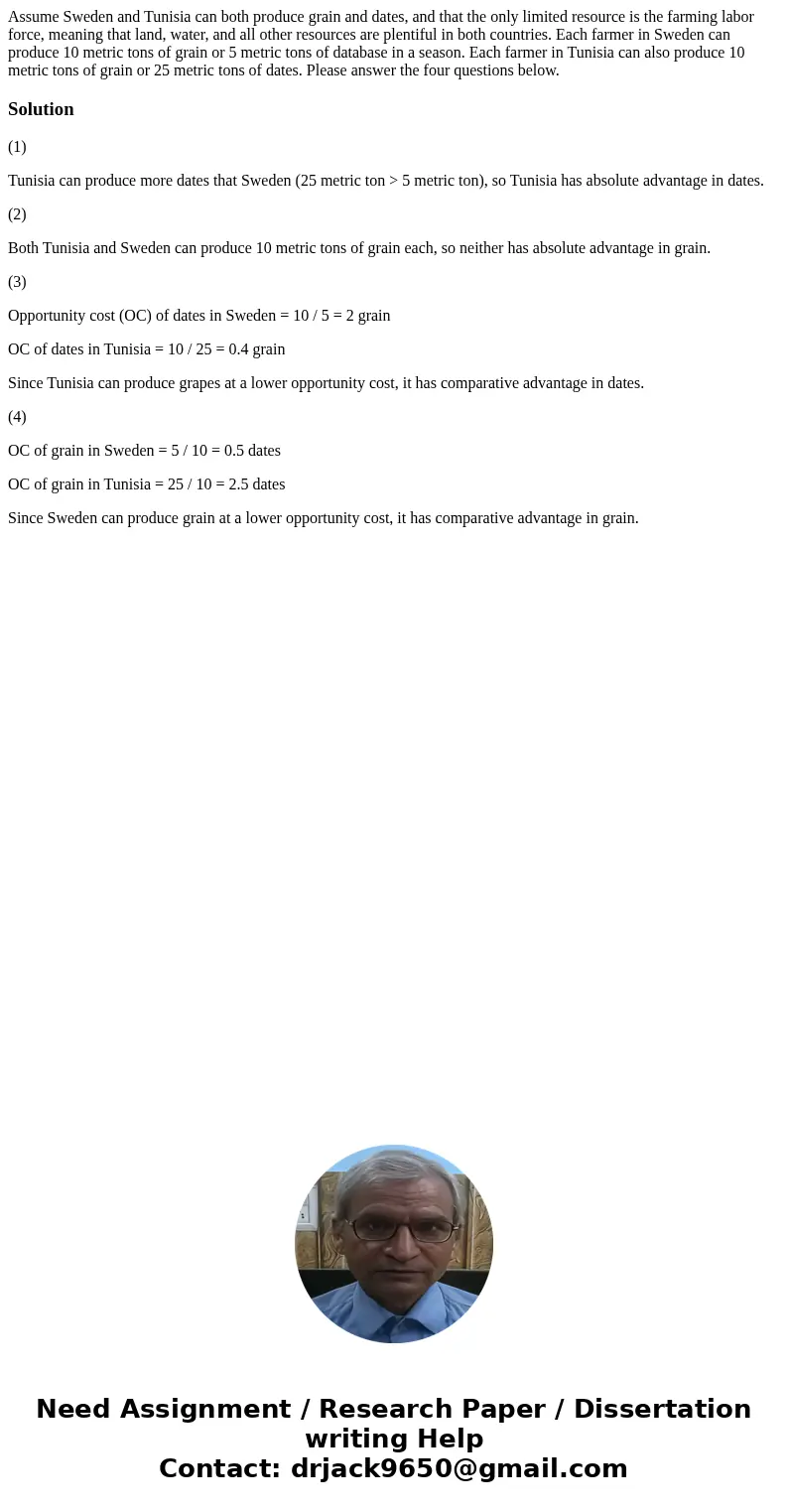Assume Sweden and Tunisia can both produce grain and dates a
Assume Sweden and Tunisia can both produce grain and dates, and that the only limited resource is the farming labor force, meaning that land, water, and all other resources are plentiful in both countries. Each farmer in Sweden can produce 10 metric tons of grain or 5 metric tons of database in a season. Each farmer in Tunisia can also produce 10 metric tons of grain or 25 metric tons of dates. Please answer the four questions below. 
Solution
(1)
Tunisia can produce more dates that Sweden (25 metric ton > 5 metric ton), so Tunisia has absolute advantage in dates.
(2)
Both Tunisia and Sweden can produce 10 metric tons of grain each, so neither has absolute advantage in grain.
(3)
Opportunity cost (OC) of dates in Sweden = 10 / 5 = 2 grain
OC of dates in Tunisia = 10 / 25 = 0.4 grain
Since Tunisia can produce grapes at a lower opportunity cost, it has comparative advantage in dates.
(4)
OC of grain in Sweden = 5 / 10 = 0.5 dates
OC of grain in Tunisia = 25 / 10 = 2.5 dates
Since Sweden can produce grain at a lower opportunity cost, it has comparative advantage in grain.

 Homework Sourse
Homework Sourse